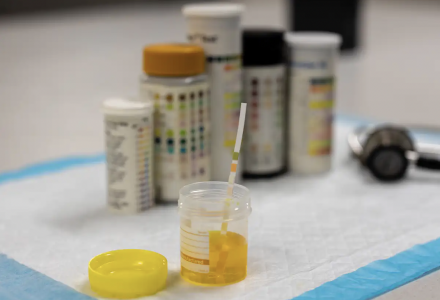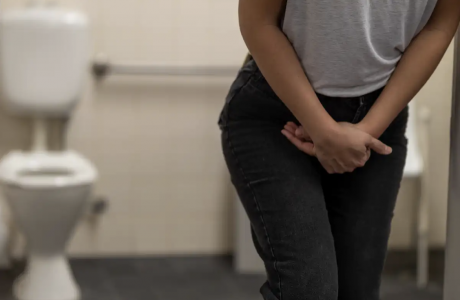SDC Rewards Member
Upgrade yours now
Is Urine Sterile? Do Urine ‘Therapies’ Work? Experts Debunk Common Pee Myths
Urine therapy (or urotherapy) is a longstanding practice based on the concept that urine can be drunk, bathed in, or otherwise applied to bring good health or even heal the body of certain ailments.
Unusual as it may sound to most people, it’s an idea that persists even today. And like most things of this nature, it has taken on a life of its own online. But is there any evidence urine therapy works?
To cut to the chase, no. Urine is waste and should be left excreted from the body.
Early origins
Before modern medicine, various cultures had innovative ways to manage health. The early Egyptians, Chinese, Indians, Aztecs and Romans reportedly used urine as a treatment for various ailments, such as to heal battle wounds or whiten teeth.There was some logic to these practices. For example, without access to clean water, urine might be used to wash a wound. Or in the absence of a gas mask, a urine-soaked rag could be used to filter out nasties during a chlorine gas attack.
Historically, these uses were only justified in contexts where no medical alternative was available. Nonetheless, some continue to recommend using urine for various ailments today.
With our current health and treatment options, there is no reason to engage with any form of urine treatment. And there is no scientific evidence drinking urine or engaging in any other urine therapy has benefits.
In all modern contexts, there are more hygienic and effective solutions than urine therapy – regardless of what ailment or problem is being addressed.
If you’re seeking a therapeutic benefit from one of the compounds found in urine, it’s best to get this over a pharmacist’s counter and not from a cup in the loo!
What is in urine?
Urine is excreted from the kidneys as they filter blood, keeping what the body needs and removing the waste as urine, which is stored in the bladder until we pee.Urine is 95% water. The remaining ingredients include urea (2%) and creatinine (0.1%) – a breakdown product from muscle and protein metabolism – alongside trace elements of various salts and proteins.
Urea is a safe organic compound, which occurs naturally when proteins are metabolised. Urea-based formulations can be found in skin and nail softening lotions, acting as an effective moisturiser and helping to improve the skin’s barrier function.
However, although urea is present in urine, its concentration is simply too low to offer any therapeutic benefit.
Apart from urea and creatinine, more than 3,000 different compounds have been found in urine. This means, as we learn more about the urinary system, future screening for a wide variety of health issues, including cancers, might be obtained through a simple urine test.
Might urine therapies be harmful?
In some cases public interest in urine therapies has been so strong, governments have had to ban proposed urine-based “health drinks”.The fact is excreted urine can be quite harmful. There are only a few ways the body can remove waste from its system, and this is done primarily through urine, faeces and sweat.
This means urine might contain environmental toxins and other nasties your body has worked hard to remove. Some medications are also excreted in urine, so drinking it can accumulate toxic levels of these drugs. In some cases urine can also have pathogenic bacteria that, if ingested, can cause serious diarrhoea, nausea, vomiting, an upset stomach and infections.
And no, urinating on the site is not recommended for jellyfish stings. This has the potential to cause even more pain by aggravating the stingers and inducing them to release more venom.
Even drinking urine in a survival situation isn’t as helpful as it’s often touted to be. Although it may make some sense to return fluid to your system, at the same time reintroducing excreted salts will be unhelpful for hydration.
Also, as dehydration sets in you won’t be making much urine anyway, so drinking urine in a survival situation is unlikely to be a viable option.
Is urine ‘sterile’?
In most cases only very low levels of bacteria are excreted in urine. But the idea urine might be sterile is simply a myth. The word sterile means “completely clean and free from dirt and bacteria”.Our body is full of resident bacterial colonies that maintain our health and assist with general daily functions. This means most of our body is not sterile, and the bladder is no exception.
A high level of bacteria is usually associated with urinary tract infections. Nonetheless, there’s an ever-growing body of research identifying all kinds of healthy bacteria living in our bladder, which can be excreted in the urine of healthy people.
Peeing in the shower is also a no-no, as urine can cause infections if it comes in contact with cuts or wounds on your legs. This practice can even make disorders such as overactive bladder or incontinence worse, by causing our brains to associate running water with the “need to pee”. This particularly impacts females as their pelvic area anatomy just isn’t designed to pee standing up.
While standing, the muscles may struggle to contract and relax properly, or even slow the stream of urine. This means the bladder may not be completely emptied and increases the chance of infections.
The bottom line is there are no scientifically supported benefits for urine therapies. If you need a particular treatment, you should talk to your doctor rather than turning to a urine-based prospect.
If you accidentally drink urine, call your local poisons information centre for advice.
Can you have a small bladder?
This article was first published on The Conversation, and was written by Christian Moro Associate Professor of Science & Medicine from Bond University, Charlotte Phelps PhD Candidate, Centre for Urology Research from Bond University







